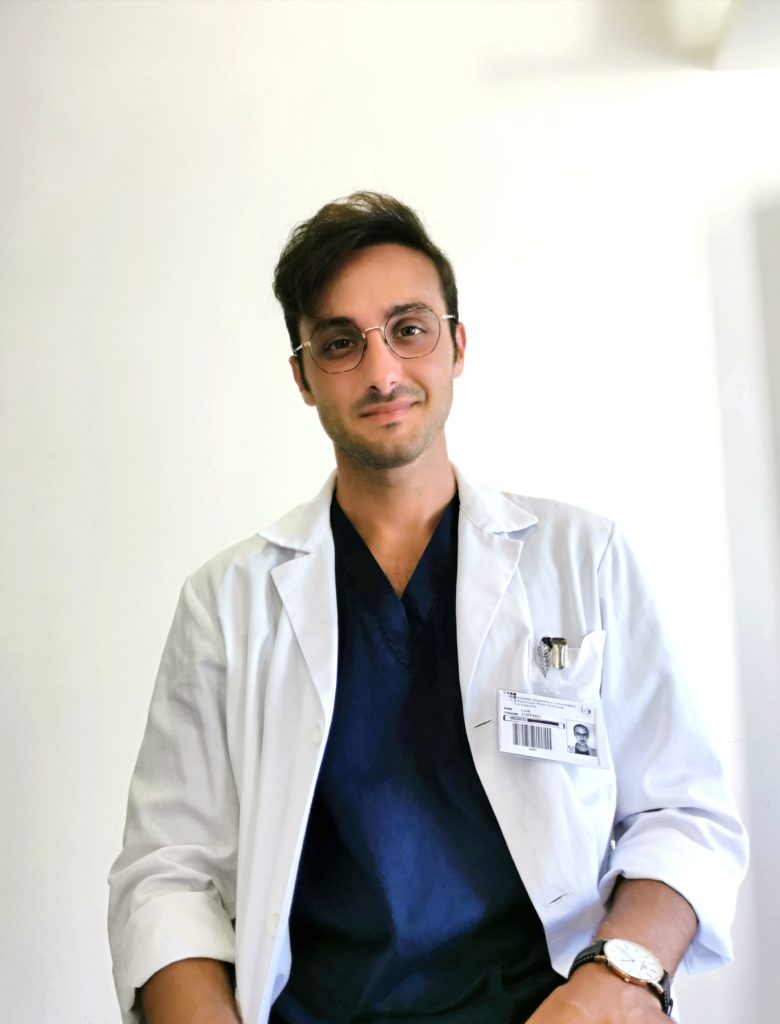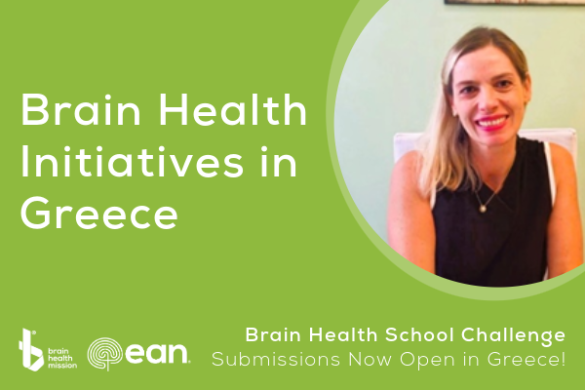- How would you describe the mission of the RRFS if you were explaining it to a member of the public?
The Resident and Research Fellow Section is the young section of the European Academy of Neurology. The major aim is to serve as a link between generations of neurologists and to represent colleagues in decision-making processes. The RRFS has the honour to represent, the duty to inform, and the purpose to help neurology trainees, young neurologists, PhD students and fellows an international level, including those who wish to spend time in other countries for clinical training or research. We want to improve the training of neurologists by learning from previous experiences from different countries, to connect young neurologists for clinical exchange and support, and to build a platform for communication among junior neurologists.
- What does it mean to you to be Chair of the RRFS?
I can easily admit that this is the most important and prestigious position I have ever achieved. But it is not just a matter of standing. Since day one of my residency, six years ago, I fought as part of growing family for me and my colleagues to obtain more opportunities, to enhance our way to learn, to create a healthier environment at work. And now, after already two years served as RRFS officer, immeasurable lessons learnt from my actual and former colleagues at office, I feel like then, during first day of my residency program, except that I already feel like part of family, one of the greatest and more admirable. I am ready to do my best to pay homage to be Chair of the RRFS, with the confident of many and more great projects to carry on within the incredible European Academy of Neurology.
- Can you give us a quick overview of your fellow RRFS officers; who are they?
They are maybe the most brilliant and smart persons I have ever met. Vanessa Carvalho, former Chair, actual Past-Chair, is a young Portuguese neurologist and she is completing her PhD in Neurogenetics and Movement Disorders. She is extremely precise and the most politically correct person I know. I have been very lucky to have the opportunity to work with her, it is a blessing to know that I can always count on her. Nina Vashchenko, former Treasurer, actual Secretary, is a Russian senior resident and she is also pursuing a PhD project on migraine. We have been worked hard in the past year and I can say that she is a great co-worker, very fast learning, always on disposal to split the workload. Alice Accorroni, actual Treasurer, is the newest member of the group. She is from Italy, but actually she is attending her residency in Switzerland. She has an impressive CV and she already showed how much excited is to give her contribution to the RRFS group. Last, but not least, Anna Sauerbier, actual Liason officer. She is from Germany, she is an expert in Movement Disorders and she the most experienced of us, as she has been part of the first RRFS Office. She is definitely a precious member of this group.
- What do you consider to be the top priorities of the RRFS right now and which one is most important to you personally?
In the time you attend your residency program or follow your research project, you could have many questions about what is right and wrong, what might be the best direction for your expectation, what could be the career as you see fit. The RRFS cannot give answer to all those questions, but I want to see at RRFS as the place when you can better understand every aspect of neurology. Thanks to EAN, we can offer several educational experiences, and this is a great opportunity. Not just because you can improve your knowledge, but also because you can learn another strategy to look at a specific neurologic topic. At the top of all, I believe the greatest weapon of RRFS is its network. In 2016, it has been created a group to gather national representatives from each European neurological society (National Representatives Network, NRN) with the goal to accelerate information flow and facilitate the conduction of surveys on different aspects of Neurology education. The latter is the most important priority to me, as I wish we will be able soon to connect colleagues from all European countries.
- Which EAN initiatives and programmes have helped you to develop professionally and are there any new or current ones that you would strongly recommend applying for?
The EAN offers so many opportunities to neurology trainees and young researchers, as schools (Spring, Autumn, Science), master classes, teaching courses, webinars, but a great effort has been spent to medical students. One initiative I lead was the Student teaser grant, that give to medical students the possibility to attend a neurology center out of their own country, allowing them to meet the world of neuroscience far in advance than residency. Another success has been the “Coffee with you” sessions during last conference, one of which I had the honour to moderate during last EAN conference, and I noticed that it has been much appreciated. I followed the activities of CoCoCare project, and I found it extraordinary. This course aim to teach residents to develop and implement high quality, evidence-based guidelines and to equip them with the competences to be more cost conscious. However, I strongly recommend to look at the new Mentorship program, recently announced by prof. Bassetti during the last conference. I believe there is not a similar opportunity all across the world, so do not let it escape.
- Are there any issues where you would like to see the RRFS, or the EAN more generally, becoming more active in the future?
I think the EAN is doing the best we can hope from a scientific association that gathers the entire Europe, as also has collaborations from all among the world. I believe we are part of a new digital era, and the entire EAN platform is going in the right direction to keep all the community updated on neuroscience news and developments. I hope it will be possible to involve more and more all the valuable young colleagues from all the Europe to exhibit their ideas and research proposals, giving them the instruments they need to take part in the research and the opportunity to contribute actively in the process. Another point I consider desirable, is to establish a common European path for neurology training to be sure that all trainees could express their full potentials.
- What is your biggest tip for medical students who might be considering specialising in neurology?
During your commitment as RRFS secretary, you have to review all the applications for RRFS and student membership. I reviewed hundreds of student applications and motivation letters, but I was struck especially from one and this was the closing sentence: “It is not just about why, it is about how: how neurology can change people’s lives”. It struck me because it reminds me a crucial event in my life. During my last year of medical school, I was attending as volunteer in a Movement Disorder unit and there I met Angelo, he had Gilles de la Tourette’s syndrome. He had a beautiful life, rich of friends and love, a great work, but the disease was really advanced with sever vocal and motor tics. I remember his face the day after the DBS implant, he was enthusiastic, almost impossible to catch an involuntary movement. I was astonished from that result, and I realized in that moment that I wanted to become a neurologist and to give my contribution in the neuroscience research to be able to change more and more people’s lives.












